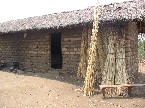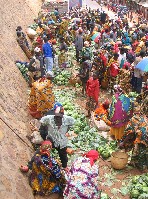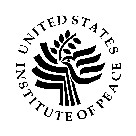Project 15 - Civil War and Activity Choice
Project leader:
Dr. Philip Verwimp - Fund for Scientific Research - University of Antwerp
Project researchers:
Tom Bundervoet - Vrije Universiteit Brussel
Eleonora Nillesen - German Institute for Economic Research
Events:
International Conference on the Evolution of Poverty and Well-Being in Burundi 1998-2007
Publications:
![]() RWP5: Health and Civil War in Rural Burundi
RWP5: Health and Civil War in Rural Burundi
![]() RWP9: Consumption Growth, Household Splits and Civil War
RWP9: Consumption Growth, Household Splits and Civil War
![]() RWP11: Rebel Recruitment in a Coffee Exporting Economy
RWP11: Rebel Recruitment in a Coffee Exporting Economy
![]() RWP21: Does Conflict affect Preferences? Results from Field Experiments in Burundi
RWP21: Does Conflict affect Preferences? Results from Field Experiments in Burundi
![]() RWP25: A Phoenix in Flames? Portfolio Choice and Violence in Civil War in Rural Burundi - Eleonora Nillesen and Philip Verwimp
RWP25: A Phoenix in Flames? Portfolio Choice and Violence in Civil War in Rural Burundi - Eleonora Nillesen and Philip Verwimp
![]() PB6: The Impact of Violent Conflict on Child Health: What Are the Channels?
PB6: The Impact of Violent Conflict on Child Health: What Are the Channels?
Burundi

A rural dwelling in Muramvya-Gitega, Burundi ©Philip Verwimp
The project team carried out a national household survey in Burundi in the second half of 2007 in collaboration with a number of partners. The fieldwork involved researchers from the universities of Antwerp, Brussels and Wageningen, together with the National Institute of Statistics and Economic Studies (ISTEEBU) in Burundi. The project was co-funded by the United States Institute of Peace and the University of Wageningen.
The goal of the survey was to collect micro-level data on the economic, demographic, agricultural, social and psychological situation of Burundian households at the end of a decade-long period of violent civil war, which caused the death of 300,000 people.
The survey aimed at re-interviewing members of rural households who had been interviewed in 1998 at the occasion of the Priority Survey carried out by ISTEEBU and the World Bank. The 1998 survey managed to interview 6600 Burundian households with 3900 residing in rural areas. Some working papers, available from the Households in Conflict Network and MICROCON (Research Working Paper 5), have been written using the 1998 data.
The 2007 survey was carried out by an academic team consisting of Philip Verwimp as research director and three doctoral students Tom Bundervoet, Eleonora Nillesen and Maarten Voors. Prof. Erwin Bulte of Wageningen University supported the team throughout. The National Institute of Statistics and Economic Studies (ISTEEBU) seconded its technical director Joseph Butoyi to work with the team and led the field interviewers.

A vegetable market in Muramvya-Gitega, Burundi ©Philip Verwimp
In July and early August, after a year-long preparation, the household questionnaire was refined, discussed and pilot-tested. The team hired 50 interviewers supervised by 4 permanent staff members of ISTEEBU. All interviewers had a university degree and almost all had previous interview experience. The team organised a week-long training course to study the household questionnaire in depth. 65 potential interviewers took part in the training, of which fifty were hired who passed an exam at the end of the training course .
With the funding at hand the team set out to re-interview 1000 of the originally interviewed households in the rural areas. These households lived in 100 communities randomly drawn from all 390 rural communities visited by the 1998 survey. The fieldwork was organised in three phases. In the first phase, 50 communities were visited to interview the original households. At the occasion of these interviews, interviewers noted the places of residence of all 1998 members alive in 2007 who were no longer living in the original household. The same occurred in phase two for the other 50 communities.
In phase three, interviewers, in small teams, visited all parts of the country, including urban areas to trace the 'split-off households'. These are the household members that were part of the original 1998 households but were not living in that household anymore. For budget reasons the team only re-interviewed sons and daughters of original households who got married in the 1998-2007 period and started their own household - this was a very challenging logistical exercise to undertake.
In the end 872 of the 1000 original households were found and the team interviewed 536 split-off households. As far as we know it is the first panel survey of this kind in Burundi and one of the few on the African continent.
A dynamic poverty profile 1998-2007 will be established with the Burundi data. After that, important hypotheses will be tested about the relationship between violent conflicts and choices of economic activities of affected households. The research team will also try to quantify the welfare losses of households that have experienced considerable war shocks, and information gathered about family members interviewed in 1998 that started their own family (so-called “split-off” households formed between 1998 and the new survey round in 2007) will be used to analyze geographical effects of the conflict.
Rwanda
For the Rwanda work, the pre-genocide DSA survey and post-genocide FSRP survey will be used to assess the impact of violent conflict on the coffee sector using econometric modelling techniques. The original database has been supplemented with community level data to capture variation at a higher aggregated level that might have affected choices with respect to coffee production.
The fieldwork for project 15 was co-funded by

![]()
